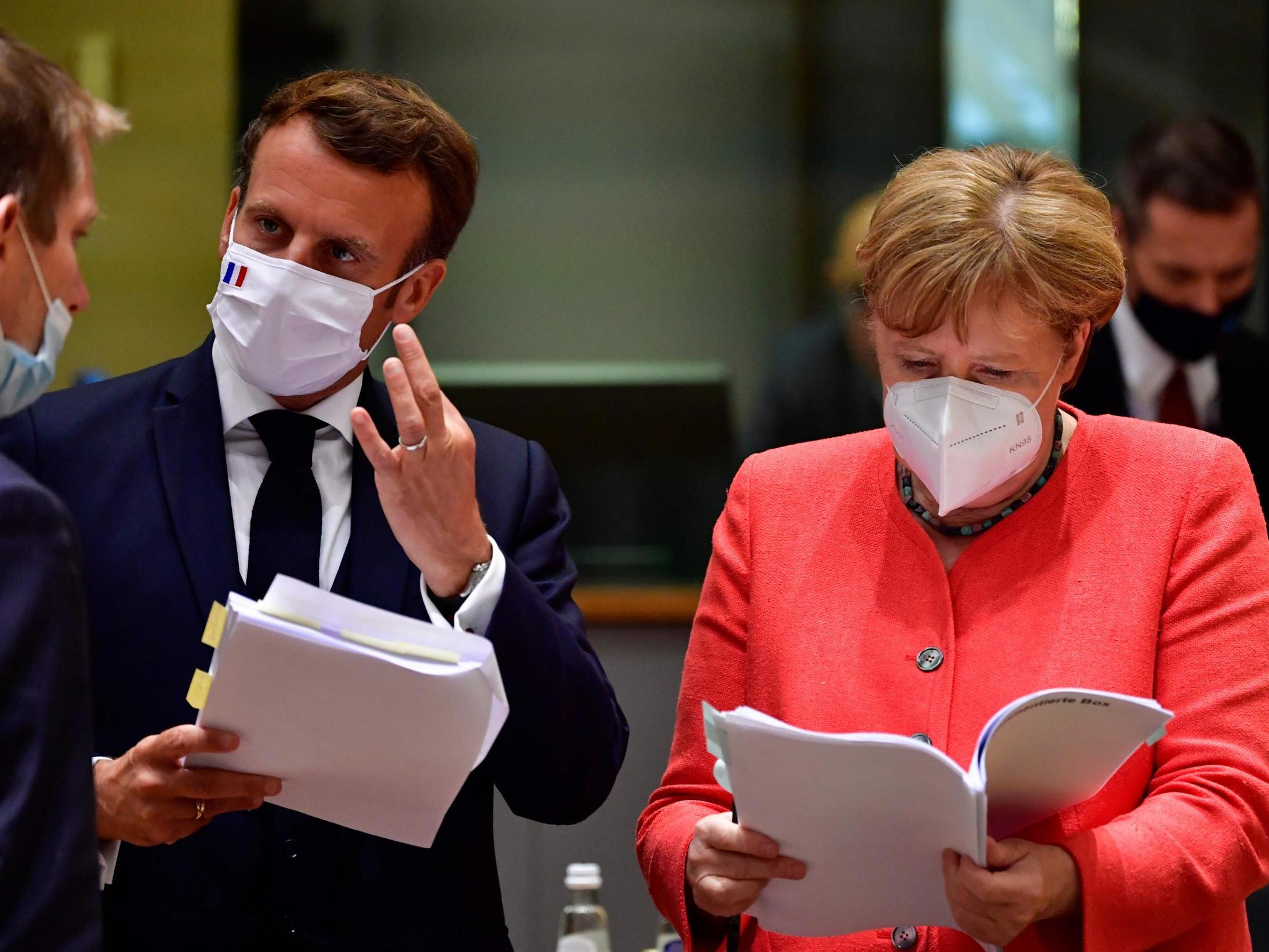EU leaders ‘near agreement’ on coronavirus recovery fund and budget
Compromise proposal considered over grants to southern nations hit hardest by pandemic

European Union leaders appeared to be nearing agreement on a massive stimulus plan for their coronavirus-blighted economies on Monday, despite lingering tensions between them.
After four days of squabbling during the bloc’s longest summit in two decades, they expressed cautious optimism that a deal was in sight over an unprecedented €1.85 trillion (£1.6 trillion) budget and coronavirus recovery fund.
French president Emmanuel Macron said: “There were extremely tense moments. And there will be more that no doubt will still be difficult. But on content, things have moved forward.”
What had been planned as a two-day summit was forced into two extra days by deep ideological differences among the 27 heads of state and government.
Dutch prime minister Mark Rutte defended the aim of a group of five wealthy northern nations – the Netherlands, Austria, Finland, Sweden and Denmark – to limit costs and impose strict reform guarantees on any rescue plan for needy nations.
On Sunday night, after the talks hit rock-bottom, European Council president Charles Michel implored leaders to overcome their divisions and agree on the bailout. Unanimous agreement is required.
Following discussions with various leaders, he later adjusted his proposals and said he was convinced an agreement was possible.
The coronavirus has killed around 135,000 EU citizens and plunged its economy into an estimated contraction of 8.3 per cent this year.
The bloc’s executive had proposed a €750bn coronavirus fund, partly based on common borrowing, to be sent as loans and grants to the countries hit hardest by the virus. That comes on top of the seven-year €1 trillion EU budget that leaders had been haggling over for months even before the pandemic.
On Sunday, the leaders considered a proposal from the five northern nations for a coronavirus recovery fund with €350bn of grants and the same amount in loans. The five, nicknamed “the frugals”, have long opposed any grants at all.
The latest compromise proposal stands at €390bn in grants.
The bloc of five want strict controls on spending, while struggling southern nations such as Spain and Italy say those conditions should be kept to a minimum.
The five have also been pushing for labour market and pension reforms to be linked to EU handouts and a “brake” enabling EU nations to monitor and, if necessary, halt projects supported by the recovery fund.
A French diplomat said joint efforts from German chancellor Angela Merkel and Mr Macron kept hopes of a deal alive during the weekend. Without Franco-German agreement, the EU has never taken momentous steps.
Additional reporting by agencies
Join our commenting forum
Join thought-provoking conversations, follow other Independent readers and see their replies
Comments
Bookmark popover
Removed from bookmarks